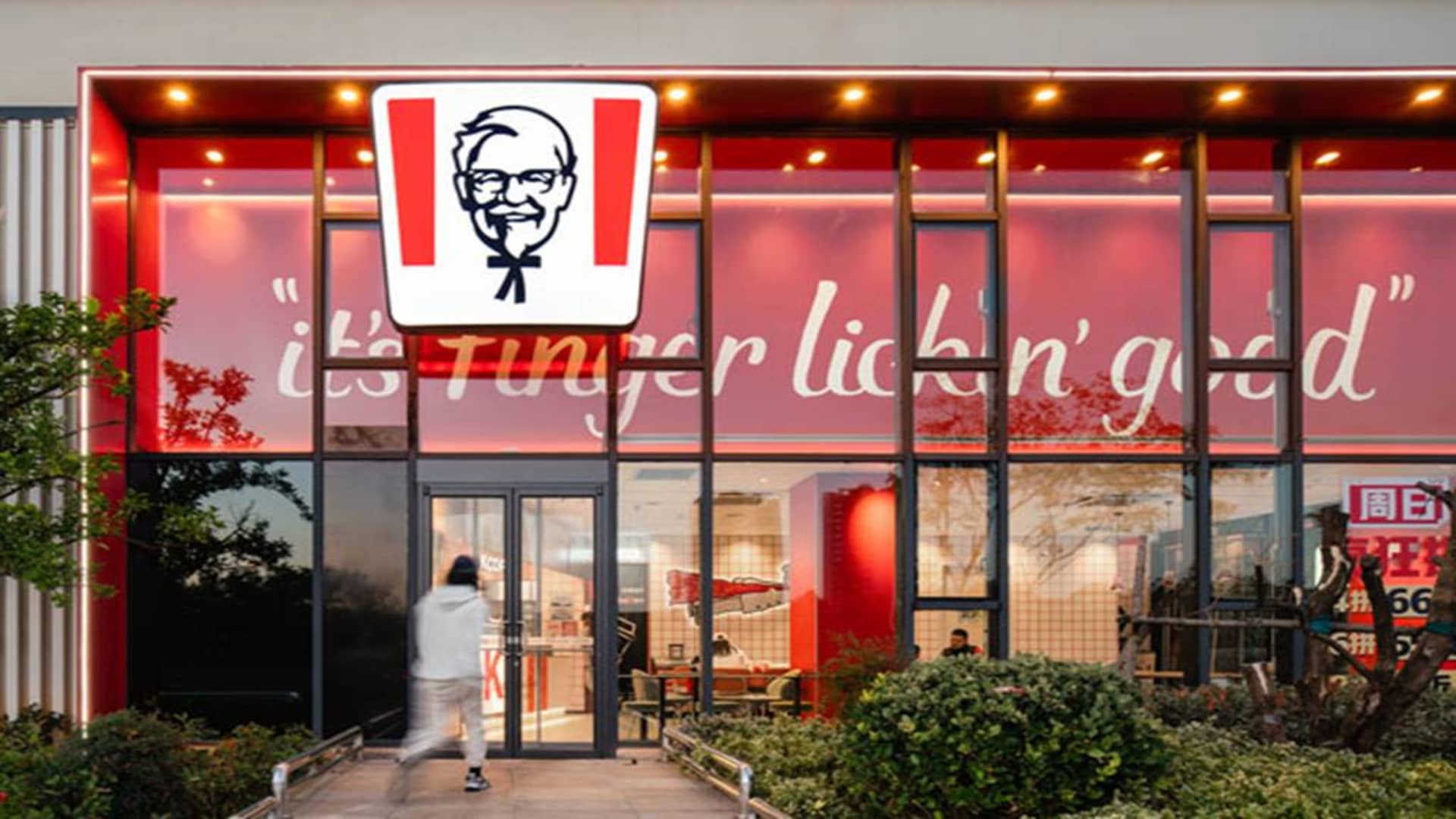While economists and investors fret over China’s low consumer confidence and sluggish growth, Yum China CEO Joey Wat says the Chinese consumer is growing more rational — and has been for years.
Weighed down by investors’ concern about the broader Chinese economy, shares of Yum China have fallen 27% over the past year, dragging its market value down to $17.51 billion. For comparison, Licensor Yum Brands, which spun off the Chinese unit in 2016 and has a global footprint, has seen its own stock rise 8%, giving it a market value of $38.87 billion.
Despite Wall Street’s worries, Yum China’s sales are growing. In the fourth quarter, the company’s revenue climbed 19% to $2.49 billion, fueled by new store openings. Its same-store sales rose 4% for the period, topping StreetAccount estimates of 3.3%. Wat pointed to the restaurant industry’s strong recovery from the Covid-19 pandemic, but also acknowledged a bigger consumer shift.
“I think the Chinese consumer has become more rational over the last few years,” she told CNBC.
Housing costs in top-tier cities such as Shanghai and Beijing have grown even more expensive in recent years, putting pressure on consumers’ disposable income, according to Wat. But in lower-tier cities, such as Chengdu, Yum China is seeing stronger sales growth because housing is cheaper and consumers have more cash to spend.
Cities in China are often classified into tiers based on factors such as population and gross domestic product, although there’s no official ranking system.
“We have a really good business model, not only in a top-tier city, but all the way to the tier five, tier six city,” Wat said.
The overwhelming majority of Yum China’s current footprint is made up of KFC locations, but the company also runs Pizza Hut restaurants and Lavazza coffee shops. China is KFC’s largest market and Pizza Hut’s second largest.
While some diners in China have been cutting back, others are upgrading their spending, shifting from instant coffee to KFC’s sparkling coffee, for example.
“There’s a consumption upgrade happening in the long term and in a subtle way,” Wat said.
At KFC, Yum China has used a barbell strategy to attract diners looking for deals and those seeking higher-quality fare. For example, the company sells a chicken breast sandwich for less than $2, as well as a Wagyu beef burger.
Yum China uses a similar strategy at Pizza Hut. Only about 30% of Pizza Hut’s sales in China come from actual pizza. The chain is introducing cheaper pizza options to appeal to the deal-hunting diner and build market share within the pizza category.
One of Pizza Hut China’s other popular entrees is steak, helping it stand out from the competition.
“In a top-tier city, you can have some choices of steakhouses,” Wat said. “Go to tier two, tier three, tier four city, and Pizza Hut might be the only choice.”
Yum China has built about half of its new stores in lower-tier cities in recent years, in the hopes of attracting consumers with more disposable income. The company has a footprint of more than 14,600 restaurants, making it the largest restaurant company in China. By 2026, the company wants to have more than 20,000 locations.
The World Bank and the International Monetary Fund are both forecasting that China’s economic growth will slow in 2024, citing weakness in the country’s real estate sector and softer global demand. Beijing is set to reveal its annual GDP target at a parliamentary meeting that kicks off Tuesday.
Don’t miss these stories from CNBC PRO:
- Berkshire Hathaway is one of the most overbought stocks on Wall Street. Here are the others
- Want an Nvidia alternative? These 6 chip suppliers look set to gain big from the AI boom
- Jefferies says buy this under-the-radar software stock with ties to Nvidia and nearly 20% upside
- ‘Opportune time to invest in real estate’: Pros name 5 REITs to buy right now

